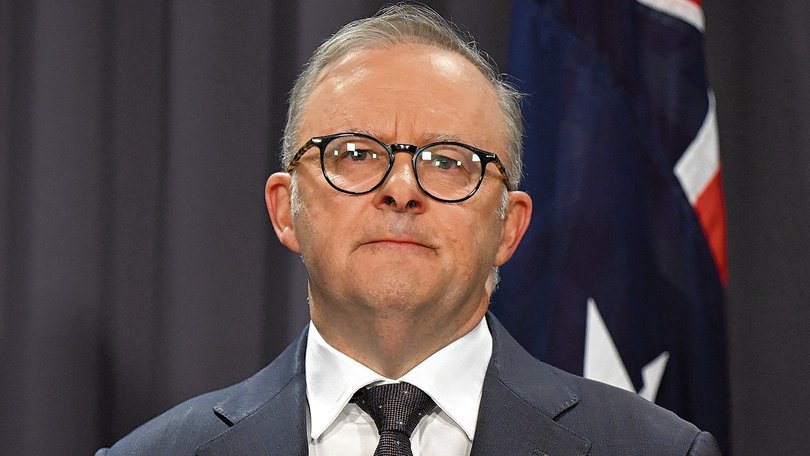Anthony Albanese rejects China’s claim over jet fighter incident as Opposition brands him ‘weak’

Prime Minister Anthony Albanese has rejected China’s claims that Australia was to blame for a dangerous mid-air incident as a new war of words erupts between Canberra and Beijing.
Mr Albanese has brushed off calls for retaliation after China’s latest act of aggression as he defended the Federal Government’s response to the incident.
The Opposition is accusing the Government of “weak leadership” amid reports no Labor ministers have directly confronted their Chinese counterparts over the incident — despite Mr Albanese insisting that Australia had raised concerns at “every level”.
Sign up to The Nightly's newsletters.
Get the first look at the digital newspaper, curated daily stories and breaking headlines delivered to your inbox.
By continuing you agree to our Terms and Privacy Policy.The Government is locked in a row with Beijing after a dangerous incident in which a Chinese jet fighter dropped flares in front of a Royal Australian Navy helicopter in international waters in the Yellow Sea.
Australia has accused China of unsafe and unprofessional behaviour.
But Beijing is attempting to blame Australia, with a Foreign Ministry spokesman saying the navy helicopter “deliberately approached” China’s airspace.
“For the purpose of warning and reminding, the Chinese military took necessary countermeasures on the spot and the relevant operations were lawful, professional and safe,” he said.
Mr Albanese rejected the claims, pointing to the concession that the incident occurred “close” to China’s airspace as proof the Australian chopper was in international territory.
“Look, this is unacceptable and it was unprofessional,” he said.
“The explanation given overnight by Chinese authorities does not satisfy any change to the position that we’ve taken.”
Mr Albanese is under pressure from the Opposition to directly confront China’s President Xi Jinping over the incident, which occurred just six months after Australian divers were injured when a Chinese warship used a sonar pulse.
The Prime Minister would not confirm if he planned to pick up the phone to Mr Xi, saying only that “we will take up every opportunity to raise these issues”.
The West understands that while Defence and foreign affairs officials have raised Australia’s concerns with their counterparts in Canberra and Beijing, it has yet to be escalated to a ministerial level.
Shadow defence minister Andrew Hastie said Mr Albanese had been caught out after telling a press conference on Tuesday that China had received “very strong representations at every level” since the incident.
“Not only is he weak but he is dishonest,” Mr Hastie said of Mr Albanese.
Mr Albanese confirmed talks had been held with China’s ambassador to Canberra Xiao Qian over the incident.
Australian Strategic Policy Institute defence analyst Malcolm Davis said the Government should consider expelling diplomats and imposing economic sanctions on China in response to the latest incident.
Mr Albanese dismissed the suggestion.
“People come up with all sorts of proposals,” he said. “We have made our position very clear to those Chinese diplomats here (in Canberra) but also to Beijing.”
